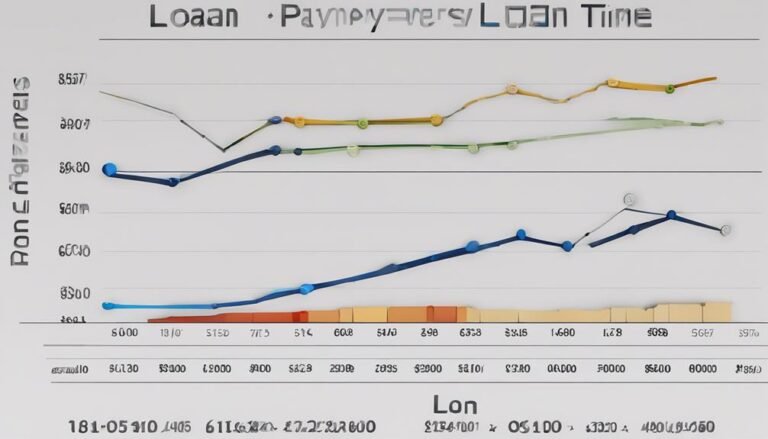Earnest Money: What It Is and How Much It Is in Real Estate
Earnest money in real estate represents a buyer's commitment and stake in a property purchase, making their offer more appealing to sellers. Typical deposits range from 1% to 2% of the home's price, varying based on market conditions. Payments can be made via certified checks, personal checks, or wire transfers into trust or escrow accounts. Refunds may be possible in cases like home inspection issues or low appraisals. Protect funds by establishing contingencies, managing escrow diligently, and adhering to legal requirements. Seek professional advice for added protection in real estate transactions. Learn more about strategies and considerations for earnest money in real estate.
Key Takeaways
- Earnest money demonstrates commitment and seriousness in buying a property.
- Typical deposit amounts range from 1% to 2% of the purchase price.
- Payments can be made through certified checks, personal checks, or wire transfers.
- Refunds may be possible due to issues like home inspection problems or low appraisals.
- Protect funds by following contract terms, using escrow, and engaging reputable professionals.
Purpose of Earnest Money
Earnest money in real estate serves as a tangible demonstration of the buyer's commitment and sincerity in the home purchase process, establishing a financial stake in the transaction from the onset.
The importance of earnest money lies in its ability to benefit both parties involved. For the buyer, it demonstrates seriousness in pursuing the property, potentially making the offer more appealing to the seller.
It provides a level of security for the seller, ensuring that the buyer is less likely to back out of the deal without valid reasons. Ultimately, earnest money helps streamline the buying process by solidifying the intentions of the buyer and creating a more secure environment for all parties until the closing of the transaction.
Typical Deposit Amounts
The customary amounts for earnest money deposits in real estate transactions vary based on factors such as market conditions, property prices, and individual seller preferences. When negotiating earnest money deposits, understanding market trends is essential.
Here are three typical deposit amounts seen in real estate transactions:
- Ranges between 1% and 2% of the home's purchase price.
- In hot markets, deposits may be higher, ranging from 5% to 10% of the property's sale price.
- Some sellers prefer fixed amounts like $5,000 or $10,000 to solidify the deal.
Negotiation tactics play a significant role in determining the appropriate earnest money deposit, especially in dynamic market conditions.
Methods of Payment
Payments for earnest money in real estate transactions are typically made through certified checks, personal checks, or wire transfers into designated trust or escrow accounts. These payment options guarantee security and compliance with the escrow process, where funds are held until the closing of the transaction.
Certified checks provide a guarantee of funds, personal checks offer convenience, and wire transfers expedite the process. The use of trust or escrow accounts safeguards the earnest money, preventing any misuse or commingling with other funds.
It is essential to follow specific payment guidelines to adhere to legal requirements and protect the interests of both buyers and sellers involved in real estate transactions.
Conditions for Refund
When contemplating the refund of earnest money in real estate transactions, adherence to specific contract conditions is imperative to determine eligibility.
Common reasons for refund consideration include:
- Home Inspection Issues: If significant problems are uncovered during the inspection process that the buyer is unwilling to accept, a refund may be warranted.
- Low Appraisal: If the home's appraised value comes in lower than the agreed-upon purchase price, the buyer may be entitled to a refund.
- Inability to Sell Current Home or Obtain Financing: If the buyer is unable to fulfill necessary conditions such as selling their existing property or securing financing, a refund of earnest money might be appropriate.
Strategies to Protect Funds
To safeguard earnest money in real estate transactions, establishing stringent contingency measures is essential. Effective strategies include diligent escrow management to guarantee funds are securely held until the transaction's completion.
Adherence to legal requirements is vital to avoid any potential disputes or complications. Proper documentation and transparency in all financial dealings help mitigate risks associated with earnest money handling.
Engaging reputable professionals, such as escrow agents or legal advisors, can provide additional layers of protection. Understanding the legal implications surrounding earnest money deposits is necessary to protect funds and uphold the integrity of the transaction.
Conclusion
In the intricate landscape of real estate transactions, earnest money serves as a symbolic shield, safeguarding the interests of both buyers and sellers. By demonstrating a commitment to the purchase through financial means, parties can navigate the complexities of property acquisitions with greater assurance.
Understanding the nuances of earnest money amounts, payments, refunds, and protections is paramount for ensuring a seamless and secure transaction process.







